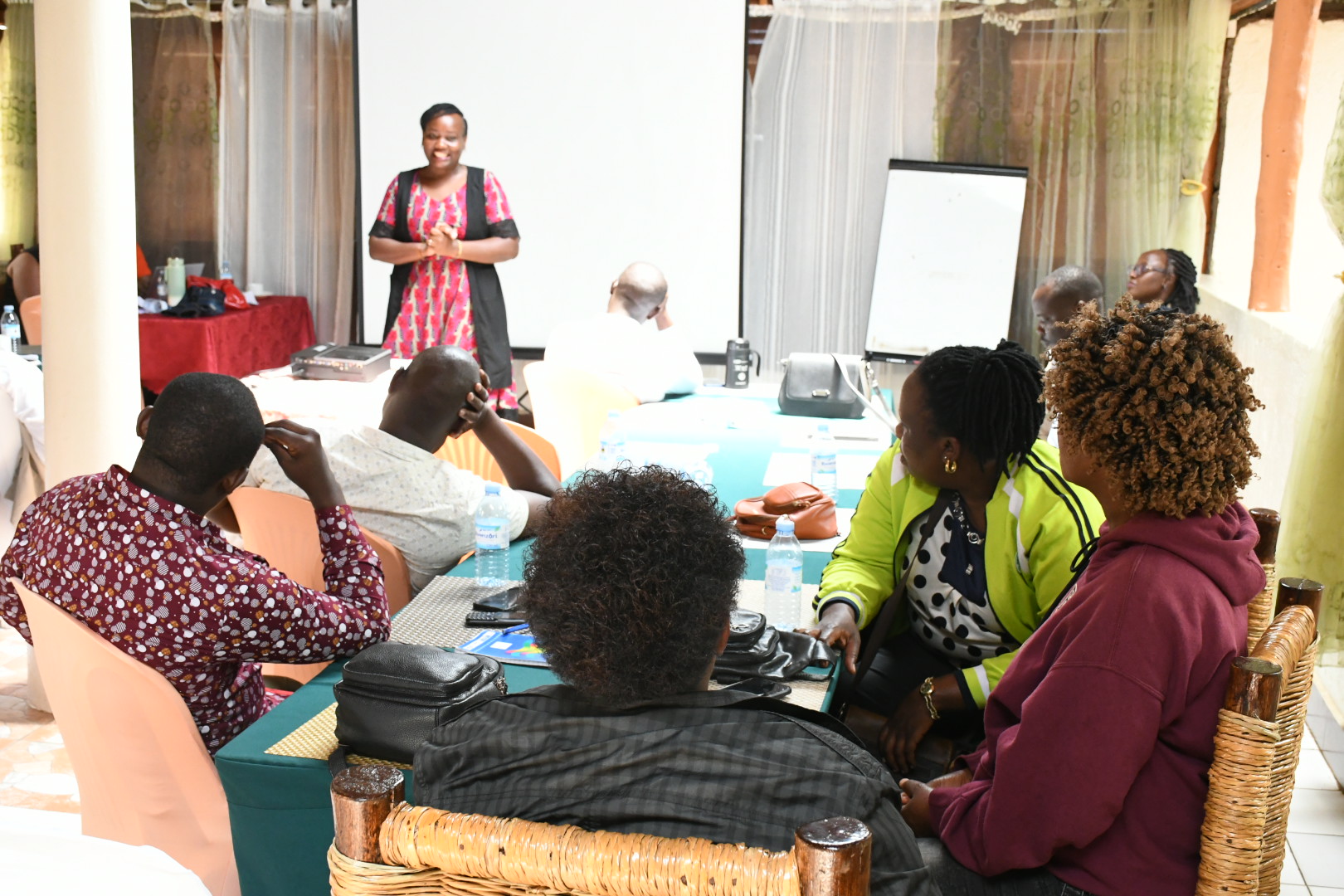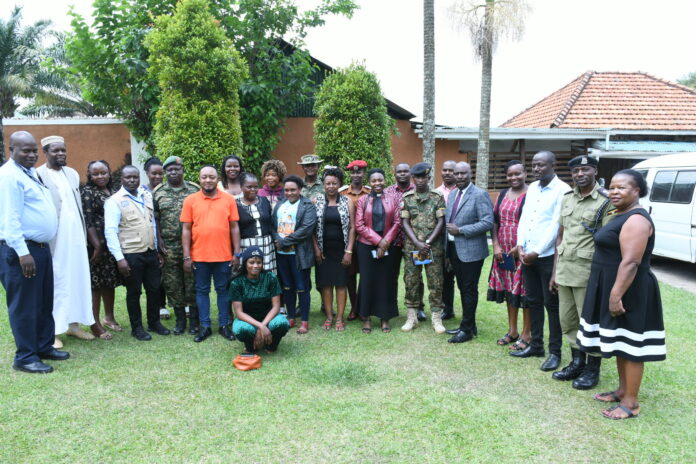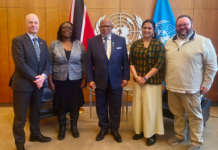By Hope Leontina
Fort Portal City, Uganda: Fort Portal City leaders, alongside various stakeholders, convened recently for a key engagement to address the escalating concerns of Sexual Gender-Based Violence (SGBV) among a section of key populations, specifically sex workers in Fort Portal.
Sex workers raised alarming complaints, highlighting the persistent sexual abuse of their rights, particularly instances where they are exploited without consent. Of particular concern was the non-consensual engagement without the use of condoms, significantly contributing to the alarming rise of HIV/AIDS transmission within Fort Portal.
Ms Moreen Kyobutungi, a sex worker and the Executive Director of the Kabarole Women Health Initiative, an organization advocating for the rights of sex workers, expressed frustration over the delayed justice for reported cases of sexual abuse by security officials.
She pointed out that fear of stigma and discrimination has prevented some sex workers from reporting abuses, further fueling the spread of HIV/AIDS among this vulnerable population.
“Many sex workers have been raped when they refuse to consent to unprotected sex, even after disclosing their HIV/AIDS status. We have reported such cases to security, but justice delays and only a few cases have been addressed.”
She said the reasons that lead women to sell themselves on the streets include domestic and gender-based violence which needs to be addressed to reduce the number of sex workers on the streets.

Kyobutungi proposed financial empowerment requesting the government to engage in income-generating activities for sex workers, emphasizing that many women in this profession are sole breadwinners in their households who lack alternative sources of income.
“Some people wrongly assume that empowering us financially will promote prostitution, which is not true. If men become more responsible for their families and cease abandoning their responsibilities to us, the number of women resorting to the streets to support their families will decrease. We need financial empowerment to address the underlying issues that force us onto the streets,” Kyobutungi stated.
Major Ceaser Oyiiki from Mountain Division Fort Portal urged them to report any instances of sexual abuse by soldiers to the relevant military offices for thorough investigations and to ensure that offenders face appropriate consequences.
Major Oyiiki said various offices within the UPDF, such as the political commissar and civil-military relationship offices, where victims can file complaints regarding the abuse of their sexual rights.
“We tell our recruited soldiers to avoid HIV/AIDS because we want a safe army. If all of them get infected, who will defend the nation? We recently held a court-martial, and one soldier was sentenced over a similar case,” He said.
The meeting also disclosed the alarming increase in new HIV/AIDS infections in Fort Portal City, with the current prevalence rate reaching 17 percent.
Ms Evan Amara, the HIV/AIDS focal person for Fort Portal City, revealed that from October to December 2023, 237 new cases of HIV/AIDS were diagnosed across 13 health facilities in the city, with 100 in males and 137 in females. Disturbingly, 27 of these cases were recent infections acquired within the past 12 months, and 15 of them were among individuals aged 20 to 34, indicating a worrying trend of rising infections among the youth.
Ms Amara emphasized the importance of designated health facilities in Fort Portal City that provide HIV/AIDS services encouraged individuals on treatment to visit these facilities for refills and urged the public to undergo testing to know their HIV status.
Leaders addressing the persistent increase of HIV/AIDS in the city acknowledged the existence of many myths surrounding the virus. They emphasized the need to debunk these myths to protect future generations.
The Voice Of Toro gender desk Focal person, Ms Betty Mujungu, emphasized the urgency of behavior change and the need to dispel stereotypes prevalent in the Tooro sub-region.
She said there are gender stereotypes that suggest that early sexual activity is culturally embedded among Batooro girls which is not true.
“People have a misguided notion that Batooro girls are inclined to have sex at an early age, which is incorrect, and we condemn it. It’s not in the culture. There are numerous stereotypes and public messages that need debunking because such misconceptions lead to the spread of HIV/AIDS.”
Ms Mujungu pointed out that the influence of unregulated music content played in bars and parties, needs to be banned because it carries gender insensitive and inhumane messages that inform people’s attitudes and behaviors towards girls and women.
“Recently, during a talk with pupils at a certain school, they mentioned a song with abusive and immoral message that suggests that a real man doesn’t have to ask a girl, a girl should be taken to the bar, be bought alcohol, and then carried home for sex. Such abusive and unregulated content needs to be banned.”
Additionally, Ms. Mujungu addressed the issue of marital rape, emphasizing the importance of recognizing women’s right to consent in sexual relations and urged the engagement of boys and men to understand that consent is crucial, in any relationship.
“We need to engage our boys and men to understand that there need for consent before sex. For those below the age of 18, it’s defilement because such a person cannot consent, and for those above 18, consent is a must or else its Rape. Some people judge a person’s character based on their dress code, assuming that a lady is open to sex probaly because she is wearing short clothes, which is not true. There is no justification for any abuse no matter what. We all have a responsibility to debunk all stereotypes that dehumanize girls and women,” Ms. Mujungu emphasized.
Ms Mujungu advocated for a rebranding of HIV/AIDS messaging by the Ministry of Health and suggested that the current generation prefers receiving information through more entertaining versions like songs and drama kits rather than traditional radio and TV talk shows.
Dr Benjamin Mwanika, a public health specialist with Baylor Uganda, highlighted the ongoing programs aimed at supporting girls who have dropped out of school. These initiatives focus on providing skills development and educational opportunities at subsidized costs to ensure the beneficiaries can stay in school.
Rev. Sarah Kakyo from Ruwenzori Diocese emphasized the need for a mindset change to challenge the stereotypes that perpetuate the idea that women should constantly depend on men. She addressed misconceptions about the Batooro culture, saying, “Some people say Batooro people are lazy and don’t want to work, and I suggest that we debunk that myth. It is also a misconception that all Batooro women are extraordinarily sexually active and good in bed. We encourage our women to work hard and be economically empowered.”
The Fort Portal Deputy City Clerk, Mr. John Bosco Rusoke said the city will look into the issue of sexual workers to see how they can be integrated into different government poverty-eradicating programs such that they can be economically empowered.














